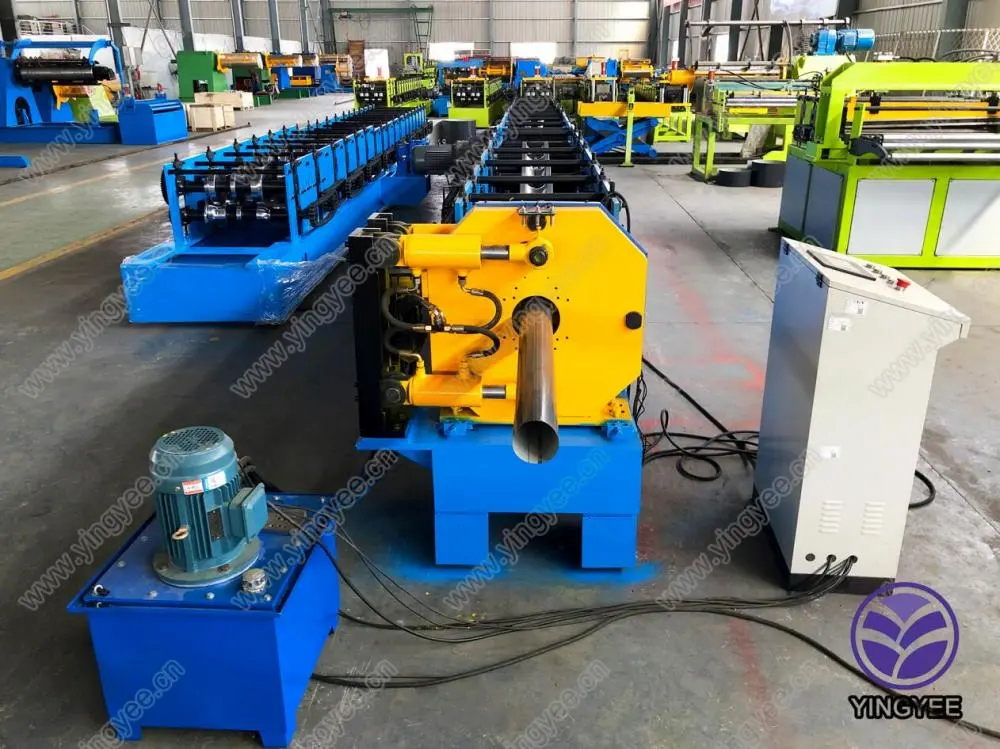The Pivotal Role of Roofing Panel Machines in Modern Construction
In the dynamic world of construction, innovative technologies have revolutionized the way structures are built. One such game-changer is the roofing panel machine, a specialized equipment that plays a pivotal role in the manufacturing process of roofing panels. These machines embody efficiency, precision, and versatility, significantly enhancing the speed and quality of roof installations.
A roofing panel machine, also known as a metal roll former, is a sophisticated piece of machinery designed to produce a variety of roofing panels from metal sheets. The process involves feeding metal coils into the machine, which then rolls and forms them into the desired panel shape. This could range from simple corrugated sheets to complex standing seam profiles, catering to diverse architectural designs and requirements.
The efficiency of these machines lies in their ability to produce large quantities of roofing panels in a relatively short period. They can operate continuously, transforming raw materials into finished products at a rate that surpasses manual labor. This not only reduces production time but also minimizes labor costs, making it an economically viable option for contractors and manufacturers.
Moreover, the precision of roofing panel machines ensures consistent quality and accuracy. Each panel is manufactured to exact specifications, eliminating human error and ensuring a perfect fit during installation. This consistency translates to stronger, more durable roofs that withstand the test of time and harsh weather conditions This consistency translates to stronger, more durable roofs that withstand the test of time and harsh weather conditions

This consistency translates to stronger, more durable roofs that withstand the test of time and harsh weather conditions This consistency translates to stronger, more durable roofs that withstand the test of time and harsh weather conditions
 roofing panel machine
roofing panel machine.
The adaptability of these machines is another key feature. With programmable settings, they can easily switch between different panel designs, accommodating various project needs. This flexibility allows for quick adaptation to changing architectural trends or client preferences, without the need for investing in new machinery.
Furthermore, roofing panel machines contribute to sustainable construction practices. By using recycled metal, they promote eco-friendly building solutions. The lightweight nature of metal panels also reduces transportation emissions, while their durability reduces the need for frequent replacements, thereby minimizing waste.
In conclusion, the roofing panel machine has become an indispensable tool in modern construction. It embodies the principles of productivity, precision, and sustainability, reshaping the industry's landscape. As technology continues to evolve, we can expect even more advanced models that will further streamline processes, enhance efficiency, and drive innovation in the roofing sector. The roofing panel machine, thus, stands as a testament to the power of technology in shaping the future of construction.

 This consistency translates to stronger, more durable roofs that withstand the test of time and harsh weather conditions This consistency translates to stronger, more durable roofs that withstand the test of time and harsh weather conditions
This consistency translates to stronger, more durable roofs that withstand the test of time and harsh weather conditions This consistency translates to stronger, more durable roofs that withstand the test of time and harsh weather conditions roofing panel machine.
The adaptability of these machines is another key feature. With programmable settings, they can easily switch between different panel designs, accommodating various project needs. This flexibility allows for quick adaptation to changing architectural trends or client preferences, without the need for investing in new machinery.
Furthermore, roofing panel machines contribute to sustainable construction practices. By using recycled metal, they promote eco-friendly building solutions. The lightweight nature of metal panels also reduces transportation emissions, while their durability reduces the need for frequent replacements, thereby minimizing waste.
In conclusion, the roofing panel machine has become an indispensable tool in modern construction. It embodies the principles of productivity, precision, and sustainability, reshaping the industry's landscape. As technology continues to evolve, we can expect even more advanced models that will further streamline processes, enhance efficiency, and drive innovation in the roofing sector. The roofing panel machine, thus, stands as a testament to the power of technology in shaping the future of construction.
roofing panel machine.
The adaptability of these machines is another key feature. With programmable settings, they can easily switch between different panel designs, accommodating various project needs. This flexibility allows for quick adaptation to changing architectural trends or client preferences, without the need for investing in new machinery.
Furthermore, roofing panel machines contribute to sustainable construction practices. By using recycled metal, they promote eco-friendly building solutions. The lightweight nature of metal panels also reduces transportation emissions, while their durability reduces the need for frequent replacements, thereby minimizing waste.
In conclusion, the roofing panel machine has become an indispensable tool in modern construction. It embodies the principles of productivity, precision, and sustainability, reshaping the industry's landscape. As technology continues to evolve, we can expect even more advanced models that will further streamline processes, enhance efficiency, and drive innovation in the roofing sector. The roofing panel machine, thus, stands as a testament to the power of technology in shaping the future of construction.